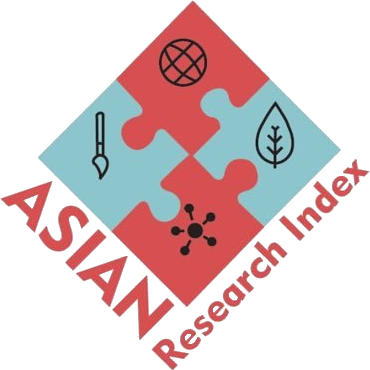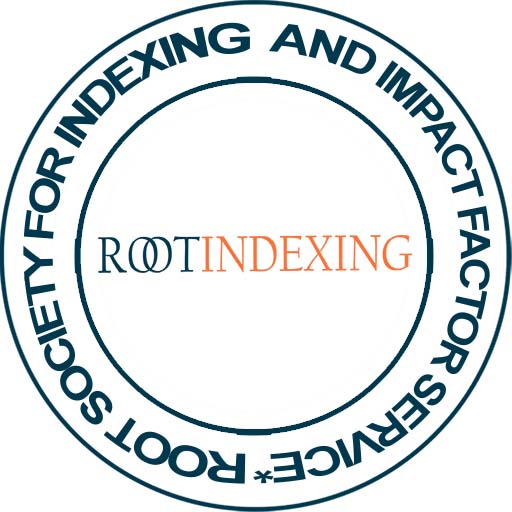معاشرے میں غصہ وعدم برداشت کا بڑھتا ہوا رجحان، اسباب، منفی اثرات اور اس کا سدباب اسلامی تعلیمات کی روشنی میں
THE GROWING TREND OF ANGER AND INTOLERANCE IN SOCIETY, ITS CAUSES, NEGATIVE EFFECTS AND ITS SOLUTION IN THE LIGHT OF ISLAMIC TEACHINGS
Keywords:
Anger, Intolerance, Patience, Moderate & Islamic Teachings.Abstract
A growing trend of anger and intolerance Wherever you look in the society, everyone seems to be living a robotic lifestyle with a shell of selfishness. Today's man seems to be completely ignorant of religious, social etiquette and manners. The beauty of any society lies in its moderation, tolerance, tolerance and provision of justice. If these things are lacking in society, extremism, aggressiveness, anger, intolerance and lawlessness will emerge. Intolerance is licking our society like termites. Every day we see such news in the newspaper that the teacher beat up the student, sometimes the student killed the teacher, sometimes the domestic workers are being tortured, and sometimes daughter of society is being persecuted. Some political opponents are seeking each other's lives, while some representatives of religious parties are busy cursing each other. Today, there is this sign of intolerance that instead of being patient and thankful in the presence of Allah Almighty at the time of trial, we appear before Him with a long list of doubts. Therefore, in some places they are complaining about the creator and in some places, they are straining their relationship with the creation. We have even forgotten that the killing of one person is the killing of the entire humanity, today human blood is cheaper than water and the reason for all these evils is to turn away from morals and Islamic values and traditions.
References
القرآن الکریم،سورۃ آل عمران،آیت۱۴۳۔
مسلم بن حجاج القشیری، الجامع الصحیح (بیروت: دارالجیل، 1979) ،حدیث۶۶۱۴۔
امام غزالی، لباب الاحیاء (کراچی: مکتبۃ المدینہ، 2008) ،ص۲۴۹۔
القرآن الکریم ،سورۃ المائدہ،آیت۵۴۔
امام بيهقی، السنن الکبری (ملتان: نشر السنة، 1335) ،حديث ۲۱۰۲۳۔
ابن حجر الهيتمی، الزواجرعن اقتراف الکبائر (قاهرة: مطبعۃ الحجازی، 1356) ،ص۱/۱۸۵۔
القرآن الکریم ،سورۃ آل عمران،آیت۱۳۴۔
امام بخاری محمد بن اسماعيل، الجامع الصحيح (قاهرة: دارالشعب، 1987) ،حديث۶۱۱۶۔
الهیتمی، الزواجرعن اقتراف الکبائر ،ص۲۰۲-۲۰۳۔
ابوبكر عبدالرزاق بن همام بن نافع الحميري اليماني الصنعاني، المصنف (بيروت: المجلس العلمي الهند، 1403) ،ج۸،حديث۱۳۔
ابوداؤد سليمان بن اشعث، السنن (بيروت: دارالفکر، 1986) ،ج۲،ص۲۸۷۔
امام غزالی، شاہراہ ہدایت ترجمہ کیمیائے سعادت،مترجم: علامہ فیض احمداویسی(لاہور: زاویہ پبلشرز،س۔ن)،ص۴۹۴۔
العلامۃ السيدمحمدبن محمد الحسينی الزبيدی، إتحاف السادة المتقين بشرح إحياء علوم الدين(بيروت: دارالکتب العلمیۃ)،ص۹/۴۲۵۔
احمد بن محمد بن حنبل بن هلال بن اسد الشيبانی، مسند احمد (بيروت: مؤسسة الرسالة، 1421) ،حديث۲۱۳۶۔
ولی الدین الخطیب التبریزی، مشکوۃ المصابیح (لاہور: مکتبہ رحمانیہ، 2005) ،حدیث۴۸۸۳۔
Published
How to Cite
License
Copyright (c) 2024 AL MISBAH RESEARCH JOURNAL

This work is licensed under a Creative Commons Attribution 4.0 International License.
AL-MISBAH Research Journal is full open access and licensed under Creative Commons Attribution 4.0 International License; and Published by: Research Institute of Culture & Ideology (REINCI), Islamabad, Pakistan. This allows the research community and the general public to gain unlimited, free and immediate access to scholarly articles, and to reuse the content freely provided that proper attribution is given to the original authors.










